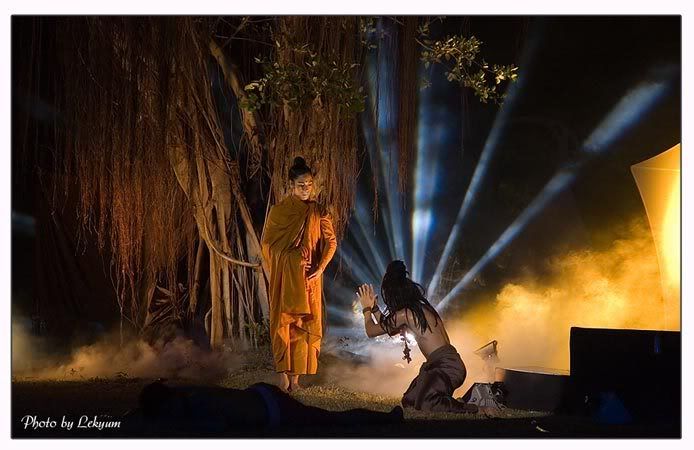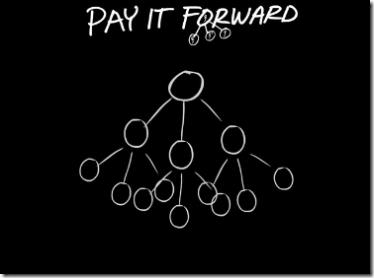So what do you think? Did Angulimala get away with murder? Is it fair for his victims that he walks free? Is it right that after killing a thousand people his only payback is a few head wounds - because he had become enlightened? Do his minor injuries balance the scales of justice against a thousand murders and grieving relatives?
Let's bring it a little closer to home. Think back to some horrible, cruel murder that mad the headlines in recent years. If the guilty person were suddenly to announce: "I am now enlightened. I should not be punished or imprisoned any longer to repay my pas bad deeds." Would we agree to let the killer go scot-free?
Even if we suppose it was actually true, that the killer had indeed become enlightened, would that change our minds? Or would we think something along the lines of congratulations for your spiritual progress, but your victims are still dead, so you must continue to sit in prison. Imagine further that the victims were our friends or relatives. Surely we would not tolerate to have the killer walk free, enlightened or not. So how to reconcile the story of Angulimala? If bad begets bad, what happened to all of that bad karma?
The big question was basically this: How do our personal actions and intentions come back to affect us? It seems like a key question. The answer might be answered if we study more about Karma, about cause and effect. So, I will left these question for you to find out these answer. You can find the answer through this blog. Believe or not, it's depend on you. Buddhism teach not to believe but let you consider by yourself.
Reference : Karma for today's traveler by Phra Bhasakorn Bhavilai with David Freyer, nustoon










